

1:30 am IST - 3:00 am IST
Past Event
Content from the Brookings Institution India Center is now archived. After seven years of an impactful partnership, as of September 11, 2020, Brookings India is now the Centre for Social and Economic Progress, an independent public policy institution based in India.
Event Report
Brookings India hosted a public panel discussion on Hillary or Donald? What the U.S. Elections Mean for India on August 1. The discussion featured Tanvi Madan of the Brookings Institution, C. Raja Mohan of Carnegie India, Pramit Pal Chaudhuri of the Hindustan Times, and Harsha V. Singh of Brookings India. The discussion was moderated by Dhruva Jaishankar, Fellow for Foreign Policy at Brookings India. The discussion focused on the implications of the U.S. elections for India, and for India-U.S. relations, including its effects on diplomacy, security, economics, and trade.
The 2016 U.S. presidential election cycle has proved to be one of the most unpredictable ever. But following the Democratic and Republican party conventions, the final candidates are set: the next U.S. President will be Hillary Clinton or Donald Trump. Both have survived bruising nomination campaigns and both remain divisive figures in their country—and within their own parties. For India, Hillary Clinton is the best known candidate while Donald Trump is the least known. Currently, there is evident cooperation between India and U.S. to the East and the South, while there are some differences in opinion on countries to India’s north and west i.e. Russia and Pakistan. Hillary Clinton is likely to continue existing policies and is generally considered more amenable to India. On the other hand, some policy stances advocated by Donald Trump on Afghanistan, the World Trade Organization and the ban on Muslims in the U.S. are not amenable to Indian interests.
The 2016 Presidential election is likely to be an inflection point for the U.S. Donald Trump is increasingly debunking the grand illusion that America is a force for good and is giving out the message that the Washington consensus is bad for Washington. Trump is going against the traditional Republican principles of capitalism and emphasizing the negative effects of capitalism such as loss of jobs due to trade and migration. On the other hand, the democrats are becoming increasingly more pro-capitalist and interventionist. U.S. is India’s most important economic partner in all areas of importance such as Foreign Direct Investment, investment in growth areas, remittances, direct investment and entrepreneurship. Therefore it is important that India sustain the current momentum of relations with the U.S. In the event of an American vacuum in various arenas of international influence, India will need to rethink its strategies to suit its interests and goals.
In conclusion, the U.S. presidential elections present a political risk in Washington that can have important consequences in India as well as the rest of the world.
Like other products of the Brookings Institution India Center, this report is intended to contribute to discussion and stimulate debate on important issues. The views are of the discussant(s), contributor(s) or author(s). Brookings India does not have any institutional views.
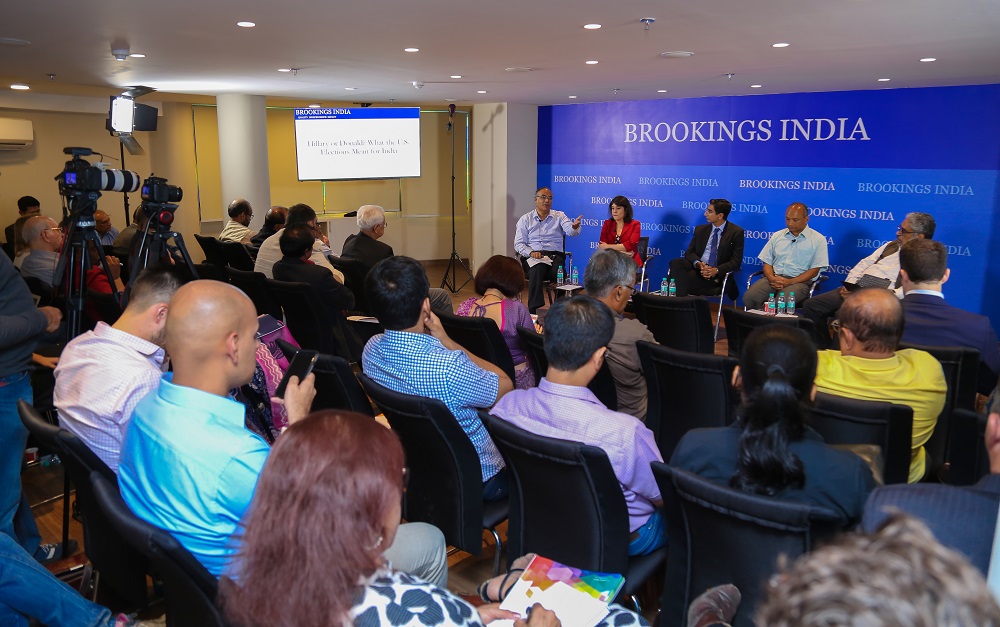
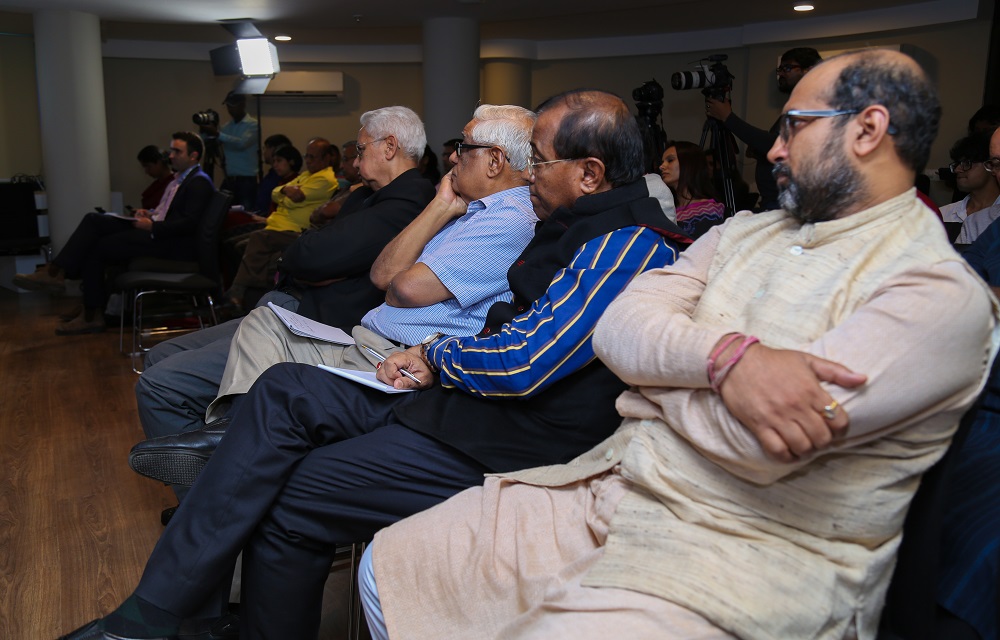
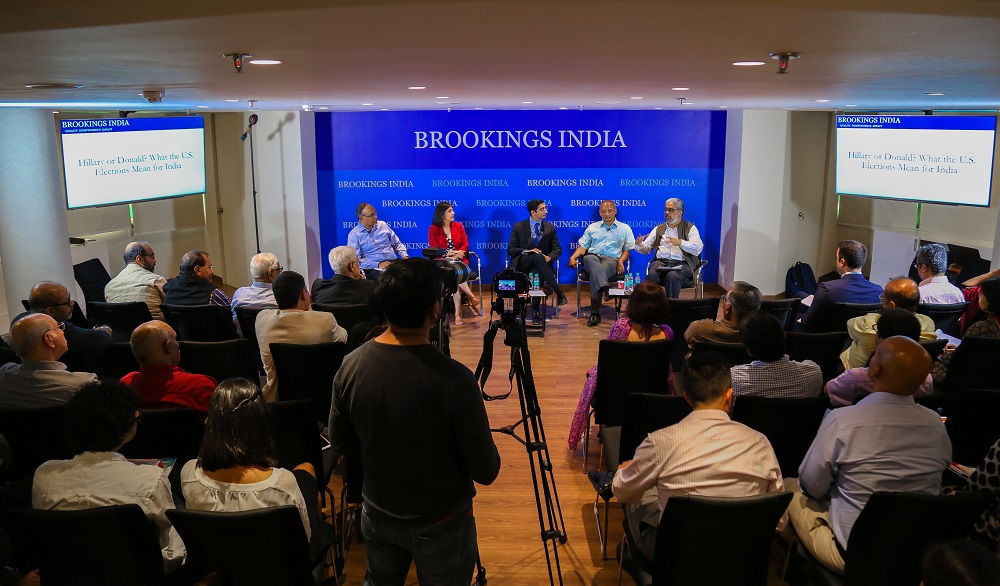
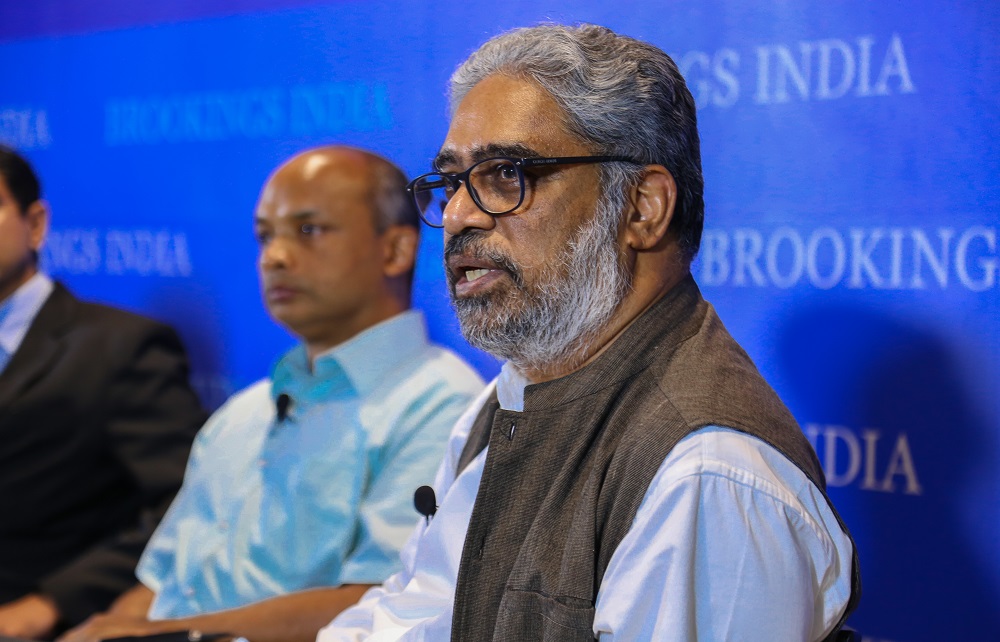
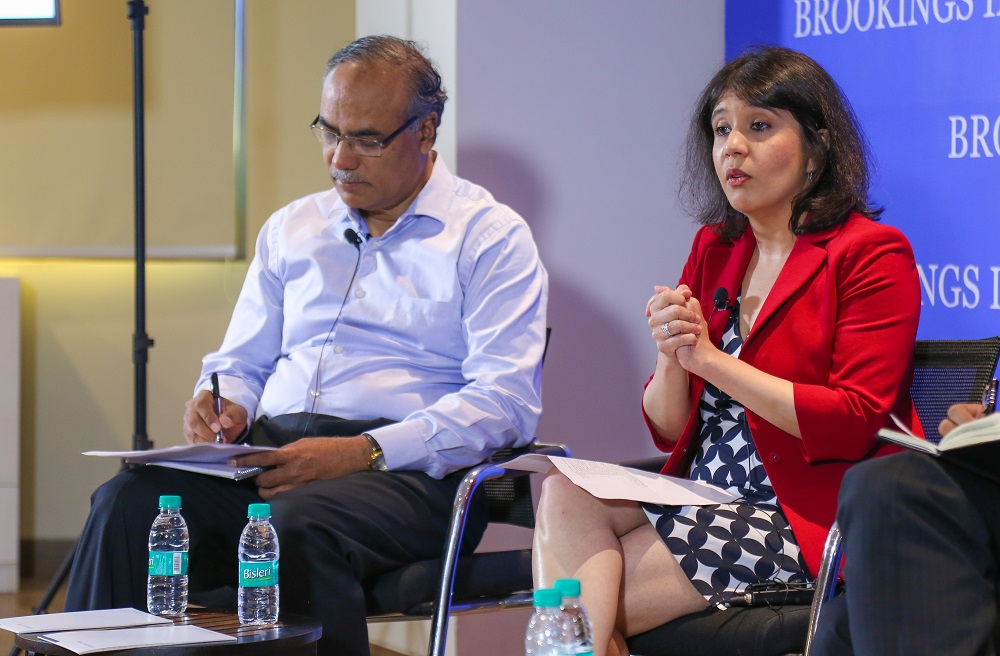

Event Announcement
The 2016 U.S. presidential election cycle has proved to be one of the most unpredictable ever. But following the Democratic and Republican party conventions, the final candidates are set: the next U.S. President will be Hillary Clinton or Donald Trump. Both have survived bruising nomination campaigns and both remain divisive figures in their country—and within their own parties. What do the U.S. elections mean for India?
To examine the elections and the two candidates, Brookings India is organising a public panel discussion on August 1, featuring Tanvi Madan of the Brookings Institution, C. Raja Mohan of Carnegie India, Pramit Pal Chaudhuri of the Hindustan Times, and Harsha V. Singh of Brookings India. They will discuss the implications of the elections for India, and for India-U.S. relations, including its effects on diplomacy, security, economics, and trade.
This event is open to the public and media. However, all participants should RSVP by emailing [email protected]. Given the limited space, an early confirmation of your participation is requested.
Speakers
Tanvi Madan
Brookings Institution
Raja Mohan
Carnegie India
Pramit Pal Chaudhuri
The Hindustan Times
Harsha V. Singh
Brookings India
Moderator
Dhruva Jaishankar
Brookings India

Rahul Tongia, Anurag Sehgal, Puneet Kamboj
2020
Online Only
Tuesday, 3:00 am - 4:40 am IST

Saneet Chakradeo
August 18, 2020